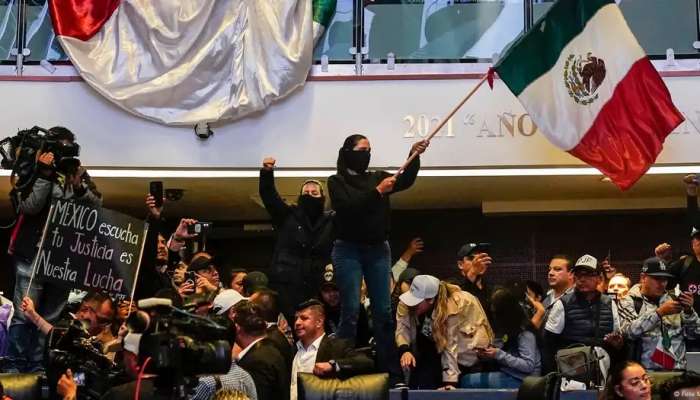
Mexico City: Mexican President Andres Manuel Lopez Obrador signed into law controversial judicial reforms on Sunday, making the country the first to elect all its judges by popular vote.
Outgoing leftist leader Lopez Obrador signed the decree in a video posted on social media, hailing the "historic day."
"We need justice for everyone," Lopez Obrador said. "For there to be no corruption in the judiciary, for judges, magistrates and justices to apply to the letter the principle that there is nothing outside the law and no one above the law."
He was accompanied by president-elect Claudia Sheinbaum, his close ally, who will replace him on October 1. The ruling coalition won a landslide election in June that left them with large majorities in both chambers of Congress.
Controversial law causes protests
Legislators were forced to suspend their debate over the law and move to another location after protesters stormed the Senate last week.
In addition to heightened tensions within the country, the judicial reforms have also created diplomatic tensions with close trade partners the United States and Canada and upset investors.
Opponents say the reforms will undermine democratic checks and balances.
The US, Mexico's main trading partner, warned the reforms would threaten a relationship that relies on investor confidence in the Mexican legal framework.
In August, US Ambassador Ken Salazar said the changes could pose "a major risk" to Mexican democracy and enable criminals to exploit "politically motivated and inexperienced judges."
Elected judges could be susceptible to pressure
Lopez Obrador has frequently criticized the judiciary since taking office in 2018, especially the country's Supreme Court. He had argued the overhaul was needed for the interests of ordinary citizens to be better served.
"It was said that we lived in a democracy, but no, an oligarchy dominated — they were the ones in charge, those at the top, a minority with a facade of democracy," he said in the video announcing the law.
However, critics fear the law will end the judiciary's political independence and that elected judges could be swayed by politics and vulnerable to pressure from powerful drug cartels.
The publication of the constitutional reform in the Mexican government's gazette begins a process to prepare for the first judicial elections for federal judges, including Supreme Court justices, set for June 2025.